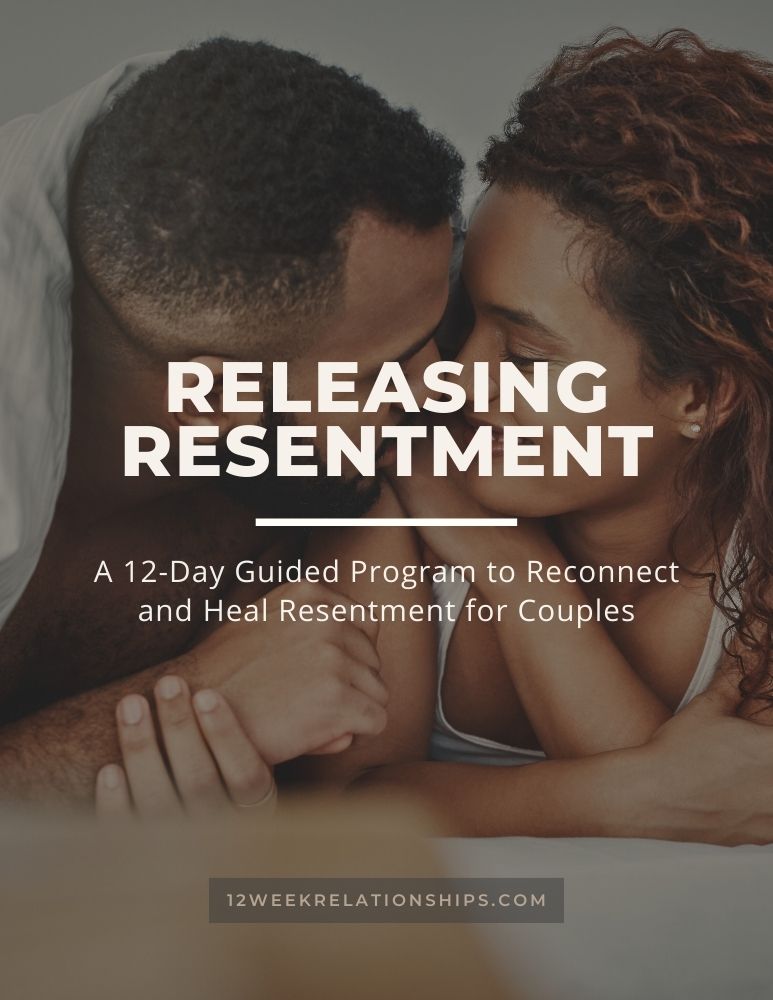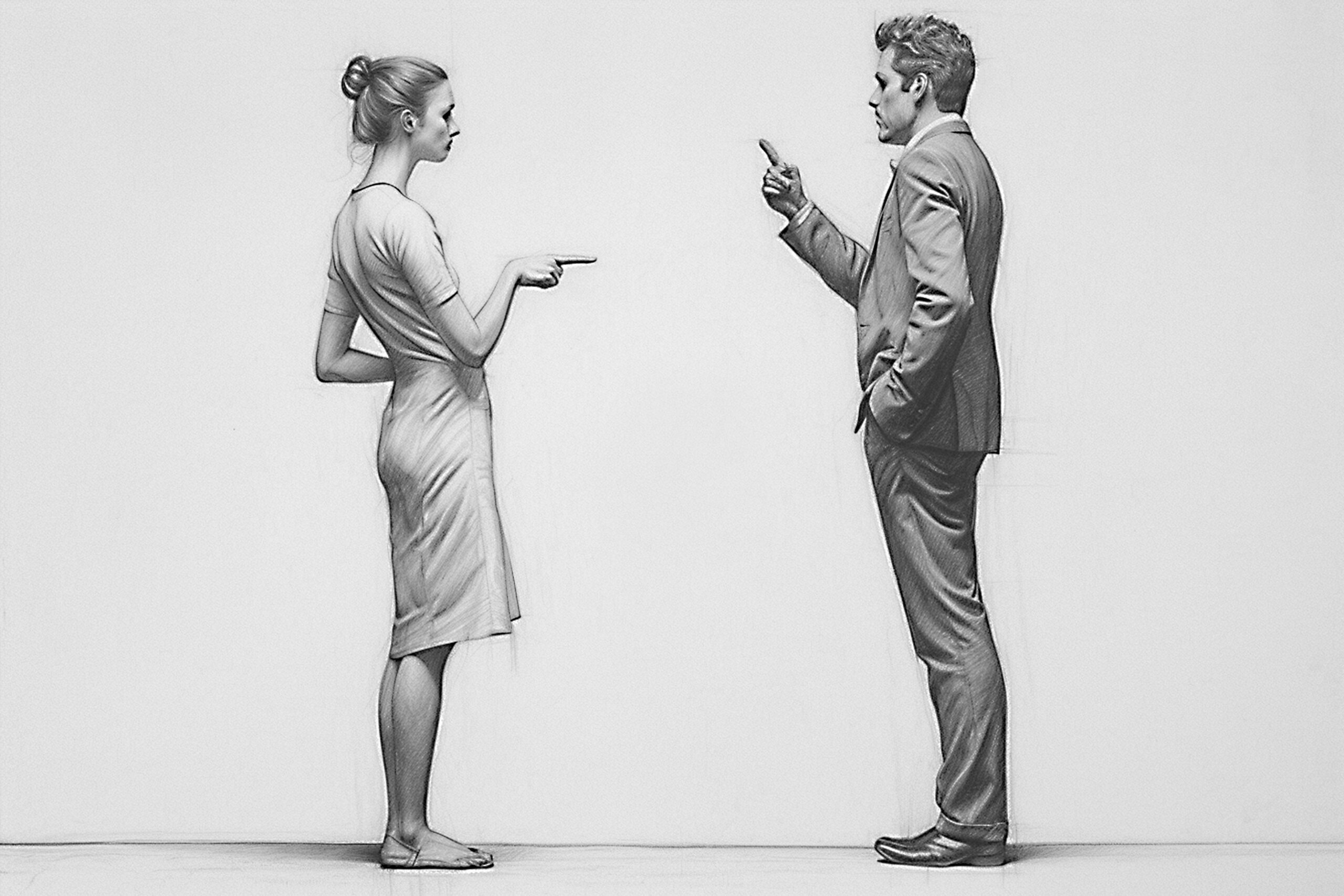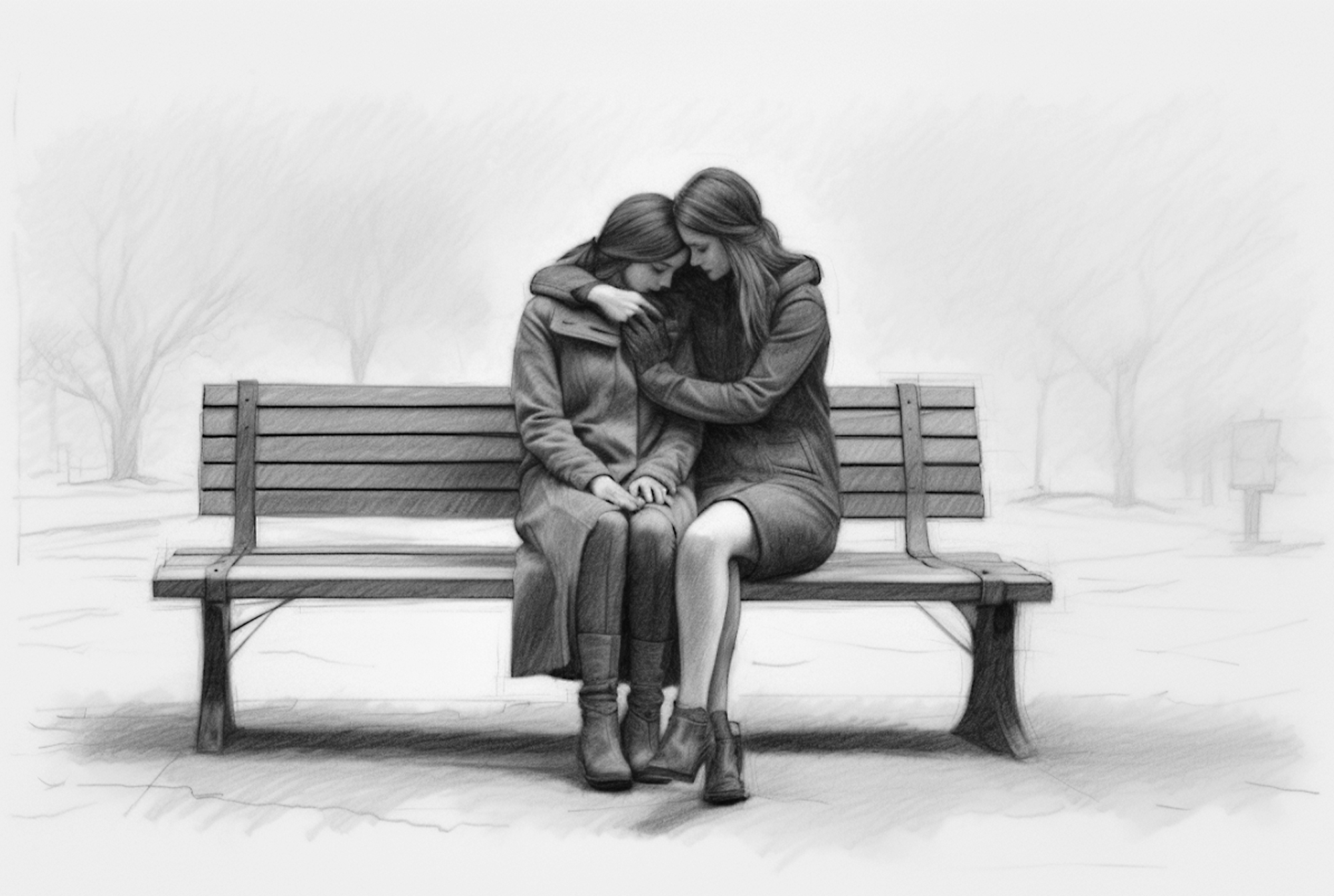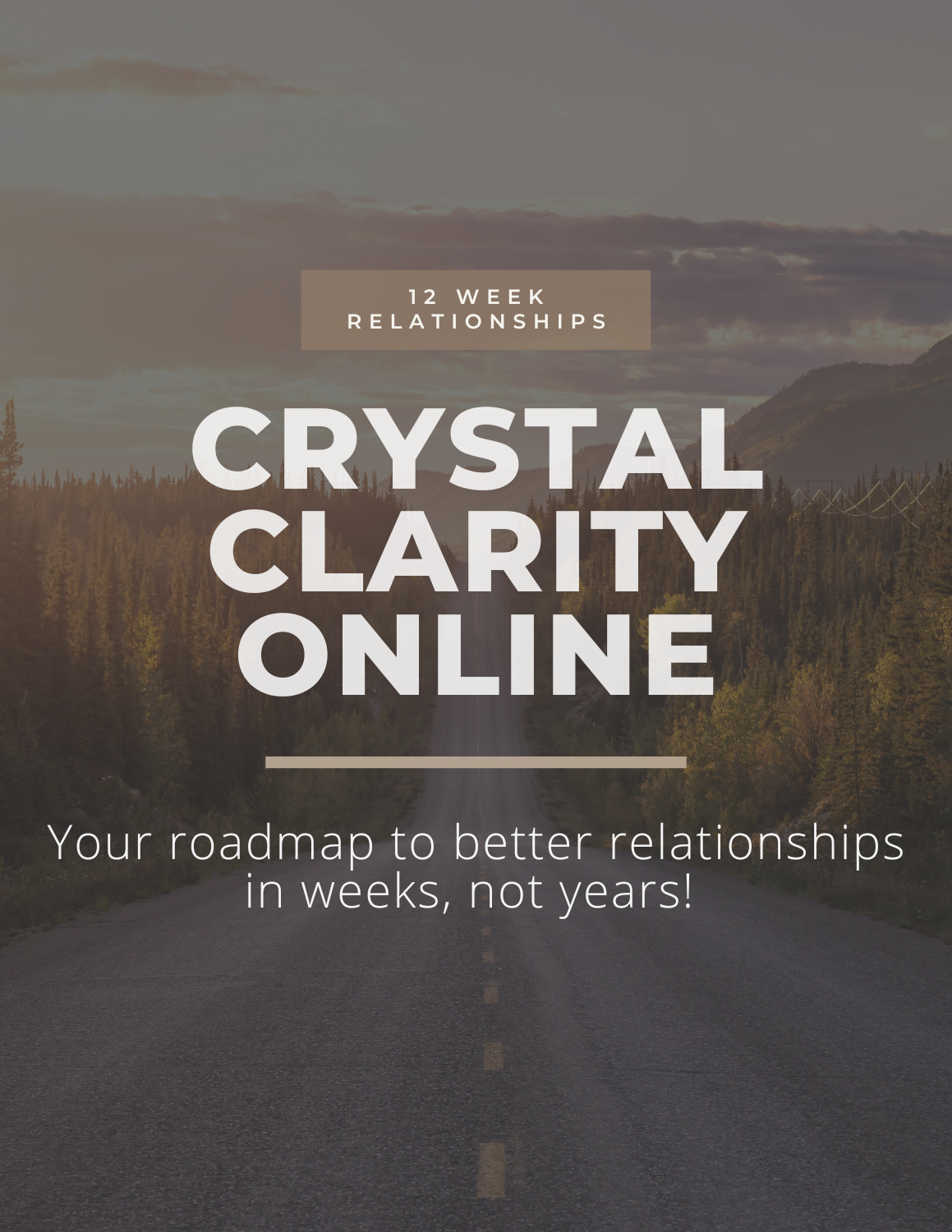Being triggered sucks, period!
But the trigger itself is actually a highly effective road sign that's directing you to areas of trauma that still need healing.
If you're asking...
"How do I stop being triggered?"
The short answer would be to resolve your underlying wound that's creating the sensitivity to the trigger. Once that pain or trauma is resolved, the trigger loses its power over you.
But if you're like us, then the first follow-up question you'd likely ask is.... "well how?"
Let's get into it in this article!
What Does it Feel Like?
Let's first spend a moment discussing what it feels like when you're triggered.
Oh, and let's go beyond "it sucks" haha!
From a biological standpoint, being "triggered" is reacting to something with an instinctual life-or-death level of response (even if your life is not in danger or not even close to being in danger).
Made simple, when you're triggered you're going to either fight, freeze, or flee.
Your response actually depends on the underlying trauma. So let's talk about that next, why do we get triggered?
Why Do I Get Triggered?
Let's say you experienced emotional abuse in a past romantic relationship.
The Toxic Ex - Part I
Your asshole partner would say things to you like, "You're so dumb" or "Seriously, I don't know why you make such stupid decisions."
When it first started happening, you simply froze. The moment had you so traumatized that you didn't know what to do or how to respond.
Eventually, you began to argue and fight back. With time, you recognized this toxic behavior for what it was. You ended the relationship and rightfully never looked back!
Today, you feel that you've healed from that experience.
Not only are you happier and healthier, the relationships you choose in your life are so much higher in quality. You're also in love with someone that you can honestly see a future with.
But every now and then you're triggered by things that remind you of your past emotional abuse.
Triggers are Reminders
This is one of the things that makes triggers so challenging.
You don't have to be in the same type of relationship, or even the same type of situation, to be triggered. On top of that, once you're triggered, it's as if that past trauma is brought right back up to this present moment. You react to the person in front of you as if it's the same thing that happened to you before.
That's because triggering events are reminders of traumatic experiences in our past.
It feels as if your pain was pulled out of your past and dropped right in front of you. And this is especially shocking when we think, "I've already healed and worked through this issue."
The Toxic Ex - Part II
Going back to our example, let's say someone at work criticizes your website design saying...
"I don't like this design. For some reason, it doesn't scream intelligent design to me."
You blow up and respond, "How dare you say this isn't intelligent design, are you calling me stupid?"
You're reacting to your coworker as if they're the emotionally abusive partner who called you stupid and unintelligent. And while we could agree that the critique was perhaps overly harsh and direct, they don't necessarily deserve a life-or-death level response.
This is a triggered response.
Triggers Responses are Overreactions
The best indicator of whether you're triggered is whether you're overreacting to the event at hand.
At that moment, ask yourself.
"Does this moment warrant an instinctual life-or-death level response, or is this a moment for logic and reason?"
In most cases, we're triggered by moments that don't require us to fight, freeze, or flee. That doesn't mean that whatever was said or done isn't troubling. It means that it's not a life-or-death moment, so rather than responding instinctually, we should be responding with reason.
Easier said than done though right?
I mean, so what should one do exactly when triggered?
What Should I Do When Triggered?
Now that you understand trauma, and the triggers that send you right back to those painful moments, we can take this a step further. We can start diving into the question, "How do I stop being triggered?"
In short, it's a process where you use your triggers as a guide to point you back toward areas of trauma that require work and healing.
Here's the challenge in that.
When we're triggered, our gut reaction is to try to control the environment. Rather than looking at WHY this moment is triggering, we react to the person or situation at hand. We tell people around us things like...
"I need you not to say (insert things), it's triggering for me."
"When you talk to me about (insert things), it's difficult, you need to do it like this..."
“Hey, I’m sensitive toward (insert things), I need you to not do this so it doesn’t trigger me.”
Now, it's OK to help those people we're close to understand areas where we’re sensitive. But this isn’t a solution. Because while they can be sensitive, the underlying pain is still there. On top of that, it can make the people that genuinely care about you feel as though they're walking on eggshells. In their minds, they have to keep track of this list of ongoing things that are going to trigger you.
This is not an effective solution.
An outward-seeking solution also does nothing to control everyone else in this world who doesn't care about your feelings or what triggers you. When you’re triggered, instead of looking to control your environment or the people within that environment, look inside yourself.
Because the truth is that if it wasn’t a place where you held pain, then the triggering event wouldn’t be a trigger at all.
In this way, it’s a lot like a bruise.
Telling someone not to touch your bruise can help to avoid further aggravation. But healing that bruise comes from within. Then once healed, it won’t be sensitive to ANYONE's touch anymore.
So here’s what you’re going to do.
When you get triggered, follow these three steps:
- Identify your emotional trigger
- Know your primary attachment wound
- Take the opposite action of the emotion
Let's go back to our example of the toxic ex.
The Toxic Ex - Part III
In being triggered by your coworker, you'd identify what you're feeling. Maybe you say something to yourself like...
"I feel like my coworker was calling me stupid and unintelligent."
But then you realize, they didn't say that at all, they said, "Something about the design doesn't feel intelligent." While it felt like a personal attack, it was a criticism of the design itself, not of you.
You want to get upset and scream at your coworker. The opposite and appropriate response at that moment might have been something more like, "Ok. That critique sounds a bit harsh. Can you tell me what you mean though by the design doesn't seem intelligent?"
Later, you think back on that previous toxic relationship with your ex.
You want to know why today's critique at work has you so upset.
Thinking on that relationship, you recognize that your anxious-ambivalent attachment or people-pleasing nature had you seeking a relationship with a narcissist. Moreover, as his emotional abuse started to surface, you convinced yourself that it was normal. You didn't want the relationship to end. Instead, you'd try to have conversations with him and ask him to see your side of the story. You told yourself to stay because "this is what love is."
You were and are still angry with yourself because it took you months to see something that was so painfully obvious.
And guess what in that moment dealing with narcissistic emotional abuse, do you know what the opposite action of your emotion is?
Your people-pleasing nature and your anxiety over the relationship ending are what had you chasing this person through their clearly abusive behavior.
The opposite action would have been clear boundaries, and being willing to walk from the relationship if the behavior didn't immediately change.
The first moment this person said to you, "You're so dumb."
You would have immediately stopped them to say, "Hey, that's not cool. If you can't speak to me respectfully, we're done right here and right now."
Owning Our Pain
This is the power of looking inward when it comes to trauma.
Because even in a traumatic experience like the one above, there's ownership to be had.
When you're triggered, we tell you to look inward. Not because the person who triggered you isn't responsible. In most cases, they did do something to piss you off. In some cases, they might even be the person who traumatized you in the first place.
But in all cases, we're asking that you look inward because your ownership is your POWER.
If you can recognize the wounds that have you accepting unhealthy relationship dynamics, then in that ownership is the POWER to make change!
Your triggers are the best road signs to indicate you toward those areas of change and personal healing!
Watch or Listen to the Episode
If you'd like to watch or listen to this episode of the podcast, click the video or any of the podcast links below.
➜ Subscribe on YouTube ➜ Follow on Instagram ➜ Listen on Spotify ➜ Listen on Apple Podcasts ➜ Listen on Spreaker ➜ Listen on Google Podcasts











